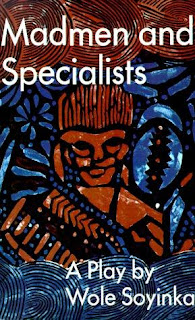252. God Dies by the Nile by Nawal El Saadawi

God Dies by the Nile* (Zed Books, FP: 1976; 175) by Nawal El Saadawi is a compendium of political, cultural, social, and religious oppression of a people by a demagogue through a supposed ruling class whom he gets to do what he wants. In this book, Nawal El Saadawi, whose subject of interest revolves around [religious] oppression in a patriarchal society, discusses how a people blinded by religion could become delusional in their depravity and even deemed it the will of God. In this story, set in the village of Kafr El Teen, the Mayor is God, his word is law, and his passions reign supreme. And when this lascivious Mayor set his eyes on the children of an old woman, Zakeya, there was nothing anyone could do but to submit, even if it had to take the Sheikh to turn the words of Allah around to deceive the masses and an unfortunate and helpless woman. Everyone was blinded to the Mayor's deeds and all worked to not only protect him but also praise him to the hilt so that in gro...








